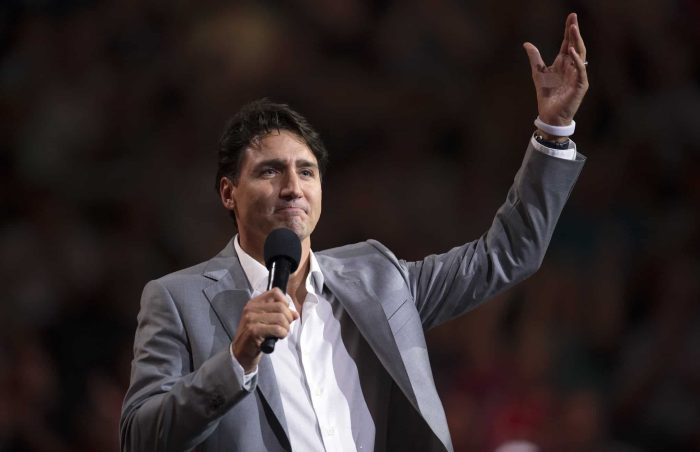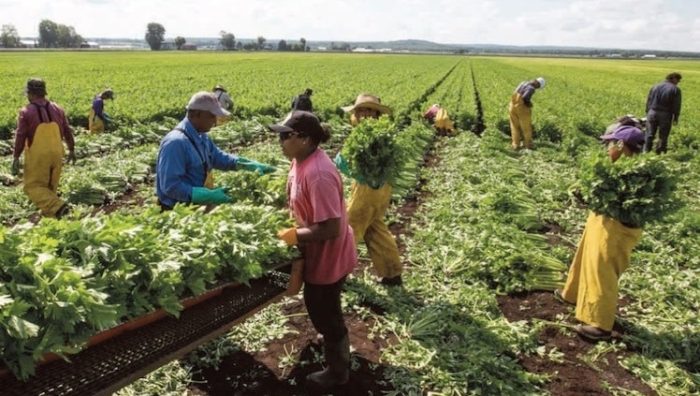Conflict of interest revelations surrounding the selection of WE Charity to administer the Canada Student Service Grant have dominated recent media coverage and prompted investigations by parliamentary committees and the federal Conflict of Interest and Ethics Commissioner. While getting answers on how WE Charity was selected are essential, there’s been scant focus on the most fundamental question: Why was this $913 million program conceived in the first place?
The Prime Minister stated it was needed so students would have summer jobs. But in many cases, despite a youth unemployment rate that topped 27 percent in April, students are declining to take jobs that already exist. A prime example is agriculture. Covid-19 has caused farmers to face delays in getting temporary foreign workers, leaving crops spoiling in their fields. Students whom beleaguered farmers did manage to attract either failed to show up or quit after deciding the work was too hard, a phenomenon that reflects our coddled Generation Z’s widespread aversion to physical labour.


Examination of the support already available to post-secondary students makes it even clearer why students opted out of available jobs. Here’s a condensed list of programs, all of which have been increased in size due to Covid-19:
- The Canada Student Grant, a non-repayable program for lower-income students, has been doubled from $3,000 to $6,000 per student;
- The Canada Student Loans weekly maximum limit has been raised from $210 to $350 and the requirement for students to contribute any portion of their educational costs has been waived;
- The Canada Emergency Student Benefit provides up to $1,250 every four weeks from May through August for students who claim they’ve looked for work but haven’t landed a job;
- Colleges and universities alike are increasing the normal size of bursaries for students in financial need. Additionally, individual scholarships are available for high-performing students; and
- The well-known Canada Emergency Response Benefit (CERB) was recently extended by eight weeks to a maximum of 24 weeks and pays $2,000 every four weeks to students who have earned at least $5,000 over the past 12 months.
Clearly, the need to create summer jobs isn’t a credible answer to the why question concerning the Canada Student Service Grant. Prime Minister Justin Trudeau’s other attempt at justifying it is the need to provide charities with “paid volunteers” (a term that perfectly meets the definition of an oxymoron) to help them deliver their programs.


There’s no doubt the non-profit sector has been devastated by Covid-19. Imagine Canada, an organization that helps charities to organize and raise funds, estimates the pandemic’s financial impact is between $9.5 billion and $15.7 billion due to a reduction in donations and revenue from the sale of goods and services, worsened by the inability to hold fundraising events. (WE Charity is a member of Imagine Canada but did not complete the organization’s Standards accreditation process, unlike some 200 other members.)
What better way for Trudeau to reinforce the chances of regaining his coveted Liberal majority than to engage those many hundreds of thousands of hyped-up youth voters who have attended WE Charity events?
Many charities are facing existential crises and the casualties have already been severe, with an astounding one out of every five Imagine Canada members having suspended or ceased operations. The sector, which employs 2.4 million people, provides services that form a vital element of every community’s social support fabric. The non-profit sector desperately needs help. But after being forced to lay-off thousands of employees, the last thing needed are volunteers to carry out programs the charities don’t have money to fund. Dispersing that $913 million directly among hundreds of needy and qualified charities would have been a great help.
But sadly, Ottawa decided not to do that. Now, despite Trudeau’s previous statement that WE Charity is the only organization capable of administering the Canada Student Service Grant, the job of wasting that $913 million has been handed to the public service. And the scrapping over the spoils has already begun, with the Canadian Federation of Students recently launching a petition to have the funds added to the Canada Emergency Student Benefit.

It seems obvious that Trudeau’s rationalization for the Canada Student Service Grant is preposterous. So what could have motivated him to implement the program in the first place? Answering that question leads to a more diabolical reason than just handing a huge plum job to his financially strapped friends, the brothers Craig and Marc Kielburger.
At the end of June, after having handed out some $170 billion in Covid-19 support programs over the previous three months, Trudeau ended his daily Rideau Cottage press briefings. That largesse, together with his mantras of, “We’ll get through this together” and “We’re here to help”, had lifted the Liberals well above the Conservatives in the polls. That even raised the prospect of a snap fall election, reinforced when Trudeau’s daily media shows shifted from Rideau Cottage to campaign-style events at the workplaces of what he called “Canadian business champions”.
The Liberals won the 2019 election despite losing the popular vote, largely due to the advantageously distributed support of the traditionally left-of-center youth demographic. Exceptional intelligence is not considered one of Trudeau’s leading characteristics, but his populist acumen together with a dramatic and, ostensibly, sincere communications style brought him to power. What better way to reinforce the chances of regaining his coveted Liberal majority than to engage those many hundreds of thousands of hyped-up youth voters who have attended WE Charity events?

But if this form of vote-buying was Trudeau’s real objective, how did he possibly expect to get away with it? The answer to that question is captured in the ancient Greek concept of hubris. To the Greeks, hubris referred to “pride and over-confidence so great that it offends the gods by overstepping the boundaries of human limitations in an attempt to assume god-like status”. Hubris was a character flaw seen in the heroes of Classical Greek tragedy, including Oedipus and Achilles. The old adage, Pride goeth before a fall, came to describe the inevitably catastrophic consequences of hubris.
In retrospect, those months of appearing daily in front of Rideau Cottage playing the sincere, empathetic, cash-gushing saviour freed from the tedious boundaries of parliamentary democracy might have led to fantasizing about the achievement of god-like status. It will be up us mere humans to judge his ethical worthiness. One such mortal is the federal Ethics Commissioner, who will now launch his office’s third probe of our prime minister’s conduct in office.
Gwyn Morgan is the retired founding CEO of Encana Corp.





